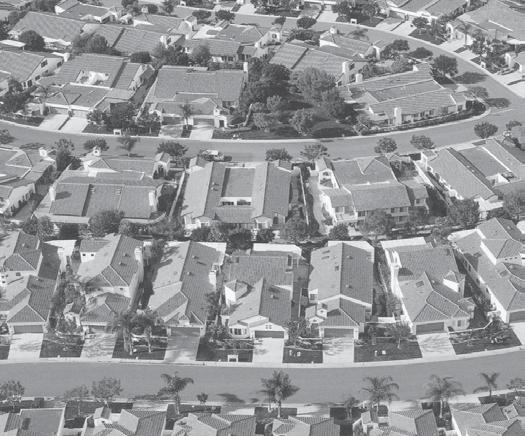
3 minute read
Utility Audits
Save on C ost & C onsumption
By Erin Kell
y
Board members and homeowners look to community managers for professional guidance on managing their associations for long-term sustainability and sound economic advice. Measures that increase reserve funding and/or reduce overall expenses are always in demand, but must not compromise the common area maintenance and overall value for the homeowners.
Trying to cover increasing annual maintenance costs without increasing homeowner dues each year is difficult at best. When a manager has done all he or she can to minimize association expenses and costs are still escalating, what else can be done?
Take a look at your utility consumption.
While every association depends on electricity, refuse, telephone, gas and water services to make the common areas functional, most associations believe there is little they can do to lower the cost of these necessities. Some associations manage to lower utility consumption by improving conservation practices. Others control costs by limiting the range of common area services they use. Some pass the costs on to their homeowners. Others simply pay their utility bills without question.
Double check utility bills.
Utility bills are confusing and cryptic and they are getting more complex, which means they are prone to even more errors. If an association is paying more than it should for utilities, that money is coming straight out of the operating budget – which ultimately comes straight out of the homeowner’s pocket! Utilities are almost always the largest single expense on an association’s annual budget, and they can also be the largest uncontrollable expense. If gas, electric, water, sewer, telephone or trash rates increase, the association is stuck footing the bill, and year after year these bills continue to spiral upward. In most instances, associations are overpaying simply because they are not aware of how their utility bills are calculated. In fact, a utility audit will probably uncover surprising errors and opportunities for savings.
Plan for a utility audit.
A utility audit does not involve retrofitting, rebates, energy management, conservation techniques, new equipment installation or changing the way you use your common areas or utilities. A utility audit is something to consider after an association has done all of the above to reduce their overall utility use or consumption. A utility audit will reduce the “per unit” cost of each utility, not the number of units used.
Continued on next page
Utility Audits Continued
After an association reduces its overall water, gas, electric or trash consumption via retrofitting, rebates, energy management, conservation techniques, new equipment installation or a change in common area use, there is an immediate reduction in utility expenses. However, as the utility rates continue to increase each year, these savings disappear at some point, even with the reduced utility consumption. In other words, there is a “break even” point that occurs, generally from three to five years. At this point, even with the reduced utility consumption, the association is paying the same amount it was paying before these measures. With a utility audit, the association continues to realize the lower per unit utility cost indefinitely, regardless of utility rate increases.
A utility audit will: 1. Find utility billing errors and overcharges, resulting in refunds to the association, or 2. Lower rate schedules available through the same utility provider, which may reduce the per unit cost of their utilities, regardless of how much or how little is used.
All community managers and homeowners associations can benefit from a utility audit, which can result in a 20% annual utility expense reduction.
Erin Kelly is Director of Operations for Pacific Utility Audit, Inc. serving the California area.
Helping Community Associations Find Their Way
Providing practical legal solutions to common interest developments in:
• Governing Document
Interpretation and Enforcement • Contract Negotiation and Preparation • General Counsel Service • Litigation, Trial and
Appellate Advocacy
Neuland & Whitney, APC
(949) 766-4700
Paving the way since 1981
License #415436




amspaving.com (800) 357-0711





